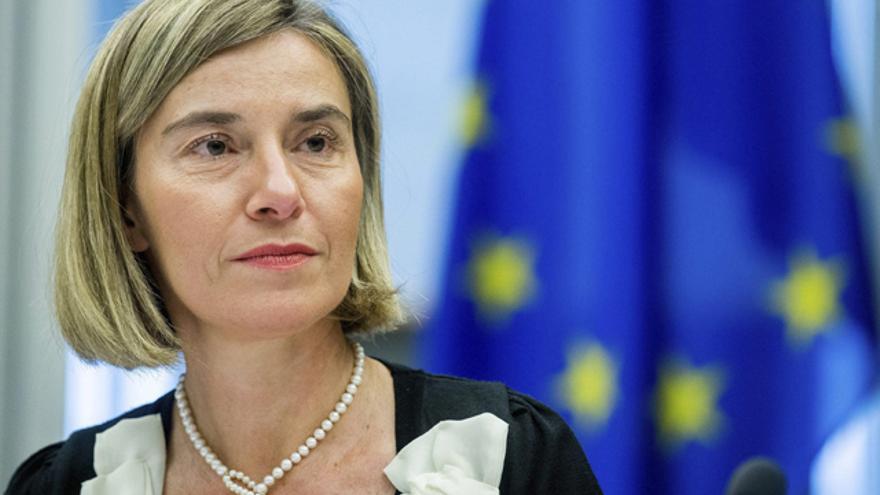
![]() 14ymedio, Havana, 1 January 2018 — In a letter published on Sunday, the Cuban Observatory for Human Rights (OCDH) criticized the European Union for maintaining a “dialogue without demands” with the Cuban government. That complaint was published on the eve of the trip to Cuba of the High Representative for Foreign Affairs and Security of the EU, Federica Mogherini, who will be in Havana on January 3 and 4.
14ymedio, Havana, 1 January 2018 — In a letter published on Sunday, the Cuban Observatory for Human Rights (OCDH) criticized the European Union for maintaining a “dialogue without demands” with the Cuban government. That complaint was published on the eve of the trip to Cuba of the High Representative for Foreign Affairs and Security of the EU, Federica Mogherini, who will be in Havana on January 3 and 4.
The OCDH, based in Madrid, estimates that the EU’s action with respect to Cuba “ignores requirements that are mandatory in the relationship between the Member States with the rest of the nations.”
The text, signed by the president of the OCDH, the economist Elías Amor, and the executive director of the entity, Alejandro González Raga, describes the stage that emerged as a result of the establishment of the new commercial and diplomatic framework between the EU and the Plaza of the Revolution as a process carried out “behind the backs of Cubans.”
Cuba and the European Union normalized relations on November 1, with the implementation of the first cooperation agreement between the two coinciding with renewed tensions between Washington and Havana.
The accord contemplates the possibility of suspending the agreement in the event of violations of human rights commitments and, in addition, lays the foundations for commercial relations between both parties.
Amor and González are concerned that the EU has been “dragged” to “abdicate from exercising an active influence in favor of democratization and human rights” on the island.
The text delves into what it defines as “the climate of violations of human rights in Cuba,” with “injustices and arbitrariness that would not be tolerated by the EU in any of its member states.”
“Do you know that more than 4,800 arbitrary detentions were committed in Cuba in 2017 and that there are roughly 114 political prisoners in their prisons, including prisoners of conscience like Dr. Eduardo Cardet?” the OCDH asks Mogherini.
In the face of the successive reports on violations of rights that the Observatory has sent, the office of the high representative has “come up with answers.” Meanwhile, in its annual report on Human Rights in the World (2016) it called the island “a one-party democracy.”
“A declaration that ignores political values and coexistence established in the West,” the authors of the text point out, asking if “the EU is redefining what democracy is in such a relativistic way?”
The repression against the independent candidates who tried to present themselves during the recent People’s Power electoral process is also described in the letter. “Is this what we must now understand as democratic for the European Union?” it says.
“The best and greatest good will, when it becomes voluntary and biased, can lead to huge errors,” warn Amor and González, who declare themselves “in favor of political dialogue. But not dialogue without demands, as has been established from Europe.”
The signatories of the letter conclude by saying that they do not understand “that the EU, to be present in geopolitics, has to stop being Europe; or at least abandon the values that have made it an example for the World.”
The agreement between the EU and Cuba still has to go through a long and complex process with regards to the application of all its clauses. So far, only Bulgaria, Estonia, Hungary and Slovakia have ratified the pact.
___________________
The 14ymedio team is committed to serious journalism that reflects the reality of deep Cuba. Thank you for joining us on this long road. We invite you to continue supporting us, but this time by becoming a member of 14ymedio. Together we can continue to transform journalism in Cuba.
